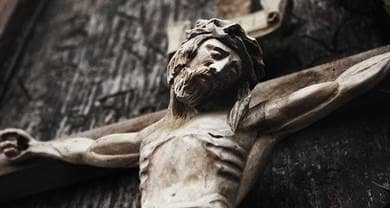- Trending:
- Pope Leo Xiv
- |
- Israel
- |
- Trump
- |
- Social Justice
- |
- Peace
- |
- Love

RELIGION LIBRARY
Roman Catholicism
Principles of Moral Thought and Structure
Catholics believe that acting morally means acting in accordance with the eternal laws of God, which are written into the human heart so deeply that even those who know nothing of God can follow the path of morality. Natural law, as this interior marking is called, comes to humans through their capacity to reason, which sparks the conscience to respond to the eternal law. This means that people of other faiths and no faith at all have the capacity to act as morally as Catholic Christians, although they will struggle more since they will not have the benefit of the sacraments that open them to the grace to resist sin.
When it comes to matters of faith and morals, the Church teaches that the pope and the bishops have great authority to instruct believers, an authority that becomes infallible in the very few instances where they are dogmatically defining a doctrine. Catholics are required to accept such teachings, but this does not mean that they check their individual consciences at the door of the church. A believer may not simply dismiss a Church teaching with which he or she disagrees; rather, the Catholic is called upon to study the teaching, pray for guidance and hopefully come to see the wisdom and power of the Church's teaching office, even if he or she does not immediately see the wisdom of the teaching itself. But in the end, other than in instances of dogmatically defined doctrine, the individual conscience holds sway.
Like all Christians, Catholics see the Ten Commandments found in the Hebrew scriptures as the basic groundwork for moral action, which together with the life of Jesus provide a deep and abiding understanding for how to act with love and justice in the world. The Gospel of Matthew relates that upon being asked which commandment was most important, Jesus replied that all of the law is contained in the commandments to love God and love your neighbor (Matthew 22:36-40). Catholics see this as going beyond the injunctions of moral law by drawing believers into a relationship with others as well as with God, and it is the foundation of the Church's teaching on issues of social justice.
From the earliest days of the Church, Catholics have performed works of mercy to help those who most need it, but the Church's current involvement in social justice issues really took form in 1891 with the promulgation of the papal encyclical Rerum novarum. In it, Pope Leo XIII called for workers to be treated with dignity and respect, protected by the state from exploitation, and allowed to form unions. It touched off a flowering of social encyclicals that have become central to the Church's work in the world. Catholic social teaching focuses on the dignity of the person as the linchpin for all discussions of ethics, politics, and justice. It is central to Catholic calls for the fair treatment of workers, for political systems that recognize individual rights, for responsible scientific research, for an end to attacks on human life in the form of abortion and the death penalty, and many other teachings as well.
This focus on human dignity has produced a series of related principles around which modern Catholic social teaching is organized: the importance of family and community, and the need for individuals to participate in them; the call to solidarity with all people everywhere; the dignity of work; the recognition that humans have both rights and responsibilities; the commitment to stand with the poor; and the necessity of caring for God's creation. Each of these principles engenders a whole host of individual social teachings and practical actions, and in the Catholic view all stand in contrast to what Pope John Paul II defined as the western world's current "culture of death" that idolizes pleasure and affluence while ignoring the dignity of the person. As an organization, the Church works in the world to further these principles; as the teacher of the faithful, it calls on Catholics to carry these principles with them into their daily lives as their grounding for moral action in the home, the workplace, and the community.
Study Questions:
1. Why do Catholics believe that non-Catholics are able to live a moral life?
2. How should Catholics interact with teachings that they do not agree with?
3. Why does Roman Catholicism have a strong focus on social justice?
4. How is community at the center of Catholicism’s moral thought and action?










